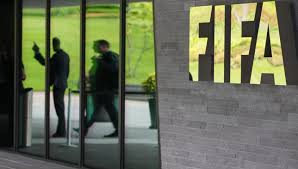By Paul Nicholson in Abu Dhabi
January 31 – FIFA’s rush to become involved in the civil extradition case of Australian refugee, Bahraini passport holder and part-time football Al-Araibi has again raised questions over the validity and motivations of FIFA’s human rights policy.
Gonzalo Boye, a legal counsel for the Palestinian FA, questions FIFA’s real motivations for suddenly getting involved in the Middle East and what FIFA is doing for other cases in the region where rights have been abuses both of individuals and teams on football business.
In Palestine’s case the issues are on-going, seemingly never-ending and according to most local observers, getting worse.
Two weeks ago Susan Shalabi, vice president of the Palestine FA and a member of the organising committee of the Asian Cup that finishes tomorrow with the final in Abu Dhabi, was arrested at the Israeli border returning to Palestine having been at the opening of the tournament.
She was held at the border at 11am for about 70 minutes before being handcuffed and taken to a police station in the settlement of Shaar Benyamin where she was detained and interrogated. She has been charged with suspicion of buying weapons parts and released on bail. She was originally told she was to be held overnight but a Palestinian organisation that tracks the imprisonment of Palestinians by Israel (known as the ‘Prisoners’ Club’ – really) negotiated her release so she could be bailed her out by her brother at about 7pm. Shalabi was one of multiple incidents that occur almost daily at the Palestine and Israeli border for players, officials and visiting teams alike. FIFA is noticeable by its absence and silence on each and every one of these cases.
In Shalabi’s case she was actually charged with a crime (if the weapon part she had buying was perhaps the signing of a new centreforward for her country, then guilty as charged). FIFA have made no attempt at intervention to help her. She has actually now returned to the UAE for the end of the tournament. The football world (but doubtless excluding FIFA) will be watching how safely she gets back to Palestine once the tournament is finished and she completes her AFC duties. That takes a special kind of courage.
Gonzalo Boye, legal counsel for the Palestine FA, has questioned the logic behind FIFA’s intervention in the Al-Araibi case, saying: “It is strange to me that FIFA have taken such a strong position regarding this Bahraini citizen but refuse to help others in actual football cases.” FIFA have now issued an unprecedented three press releases on theAl-Araibi issue.
“This is hypocrisy. Where was FIFA when there was the investigation of the violation of human rights in Qatar and all the other cases that we have seen and the allegations that have been made…The FIFA Council chose not to take any decisions regarding the violation of human rights of Palestinian footballers. They refused to do that. At the end everything is double standards,” said Boye.
“In my opinion they (FIFA) do whatever they want. What about the human rights of footballers in Yemen. They haven’t done anything for them. What about Syria?” Two countries whose footballers, alongside the Palestinian players at this tournament, have similarly exhibited very special and humbling kinds of courage.
Boye also questioned whether FIFA were following their own statutes in this case. “You must also ask why do they get involved in a civil case. According to FIFA’s statutes I cannot go to a civil court. They say I can’t go to a jurisdiction outside the sports bodies. And yet they want to get involved in civil matters,” he said.
“They bend the rules to their own ends. This is a political interest. Why? To be honest they don’t care about this poor Bahraini boy, they only care about causing damage and splits in the region. I don’t think the people in the region are so stupid, it is a little insulting.”
FIFA’s political meddling in the Middle East and AFC federation politics has been met with fierce resistance by member associations in the past who have displayed a solidarity and sent a clear message to FIFA president Gianni Infantino that they are quite capable of running their own affairs and won’t accept his manipulation.
While that solidarity has remained predominantly intact, the national geopolitics of the region and ‘geopoliticians’ are looking to create fissures. It is an opportunity that has not been lost on Infantino and his new found human rights morality.
There is not a voice anywhere in world of football that doesn’t hope Bahrain and Thailand come to the commonsense solution regarding Al-Araibi and return him to Australia – except perhaps at FIFA and amongst the Middle Eastern geopolitical players.
Contact the writer of this story at moc.l1751338855labto1751338855ofdlr1751338855owedi1751338855sni@n1751338855osloh1751338855cin.l1751338855uap1751338855

